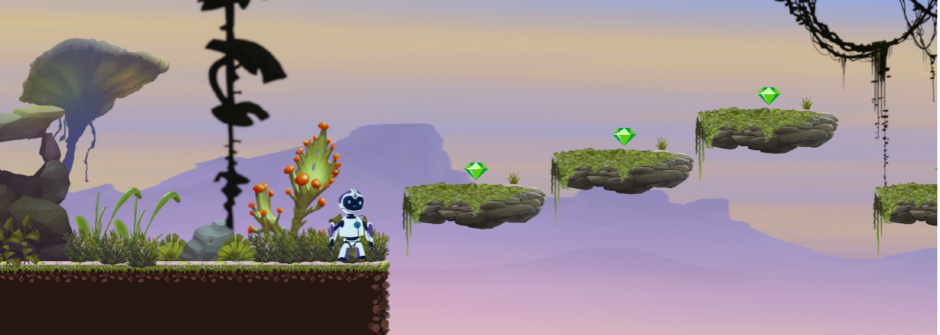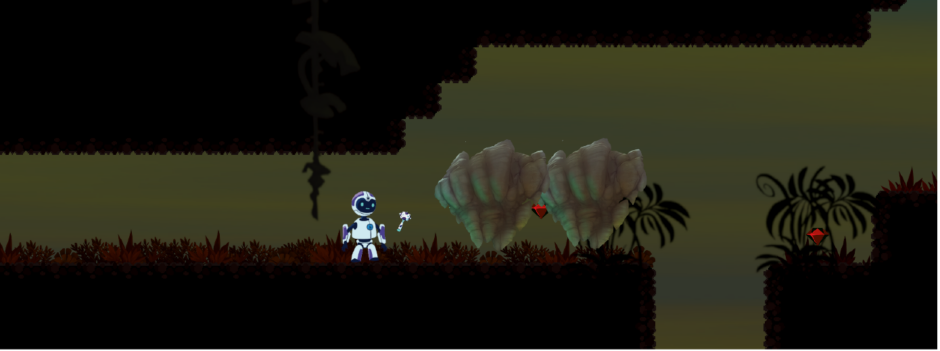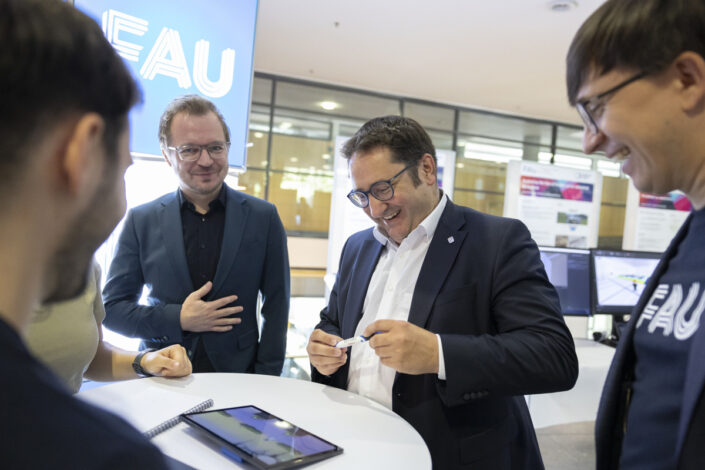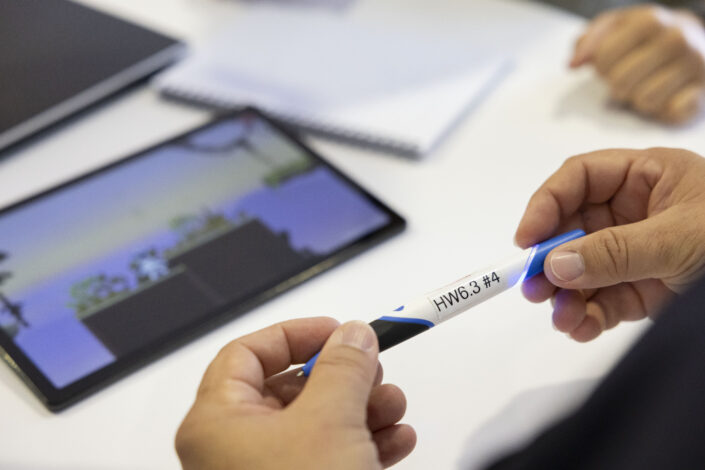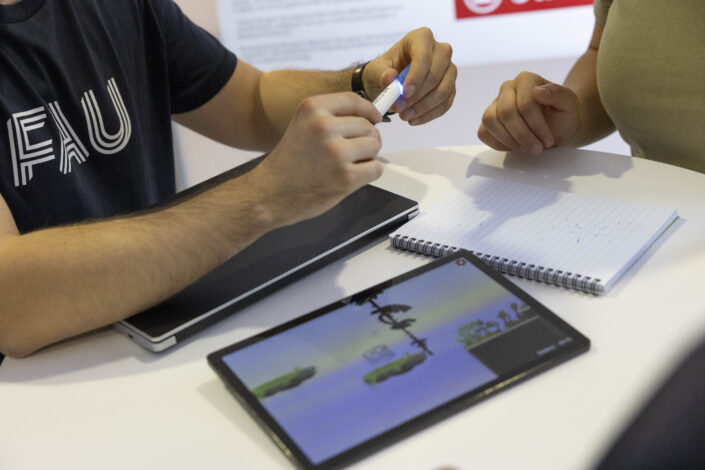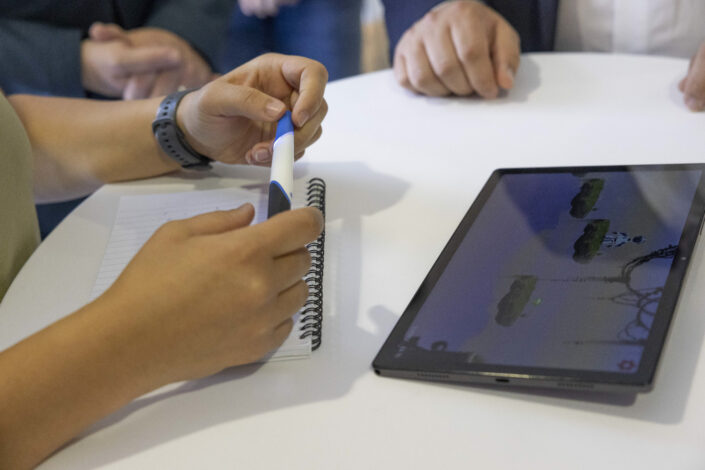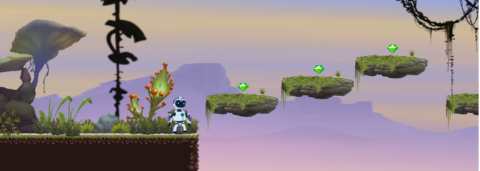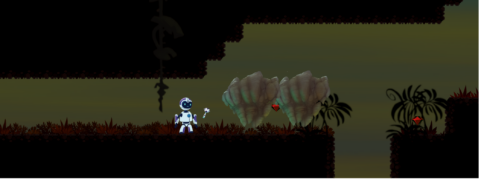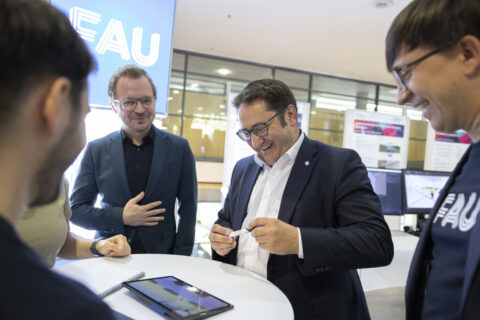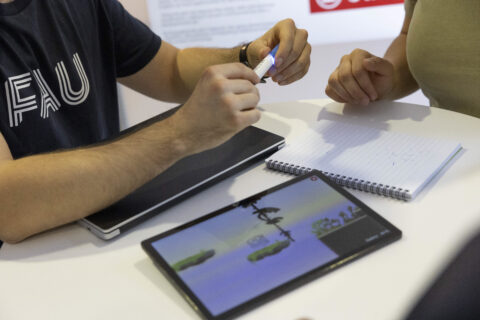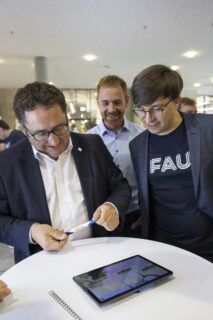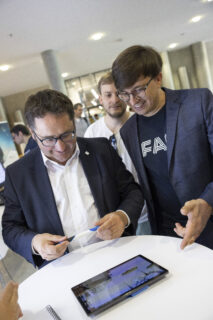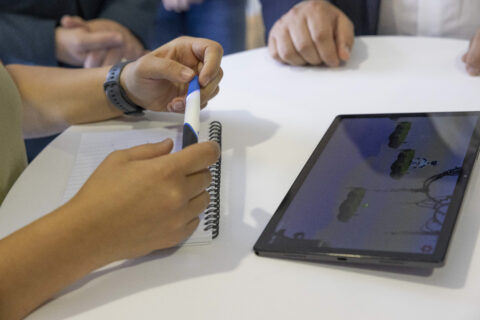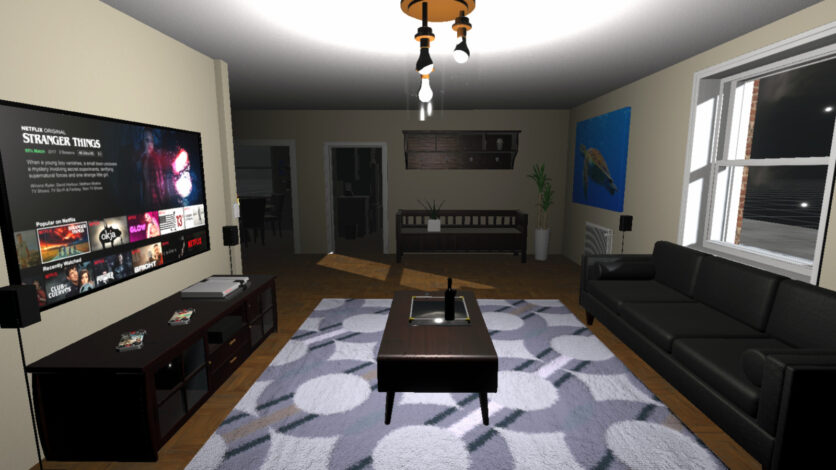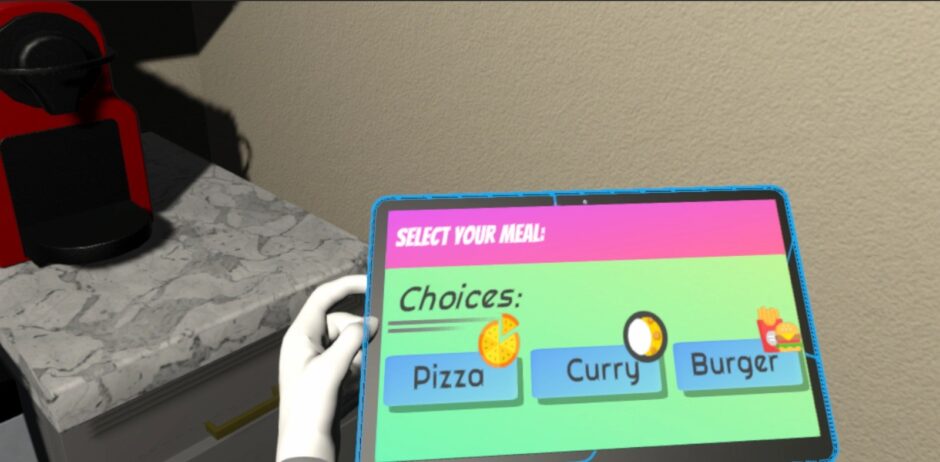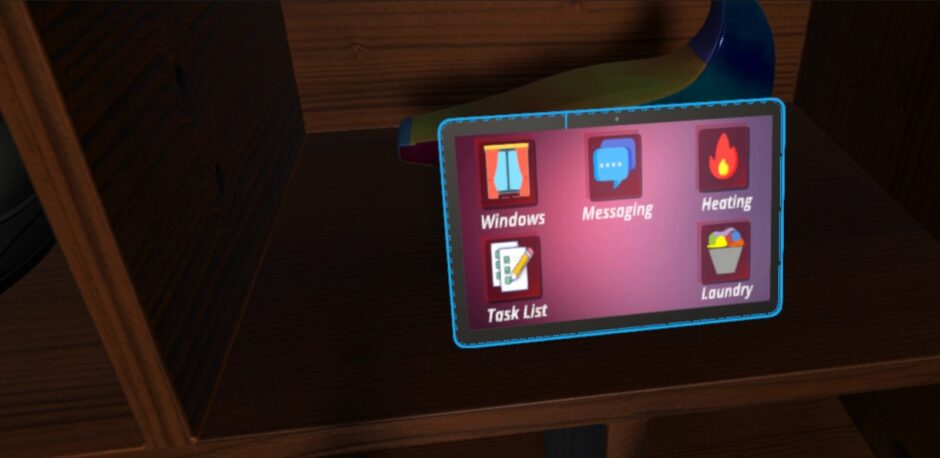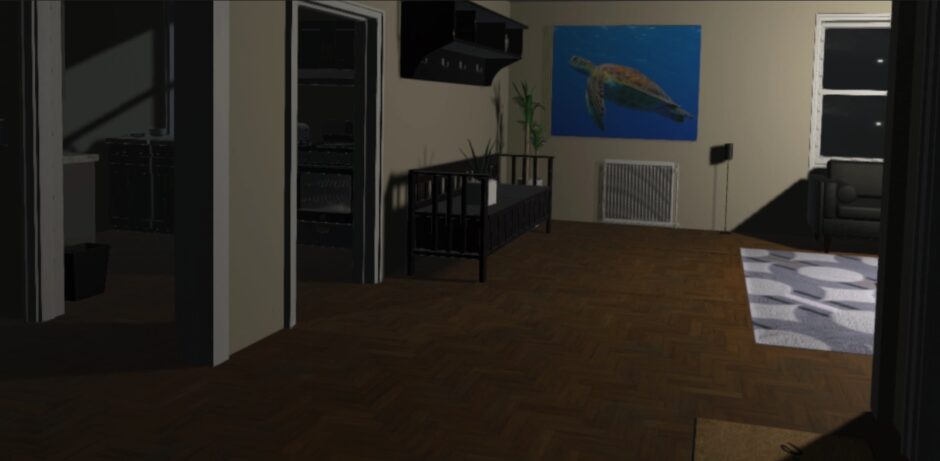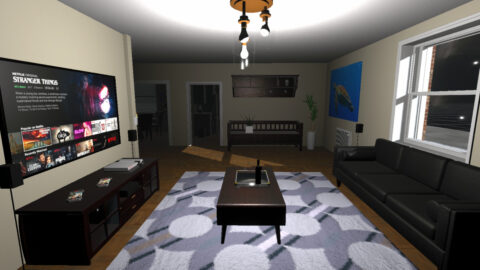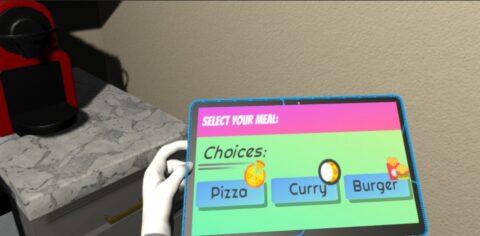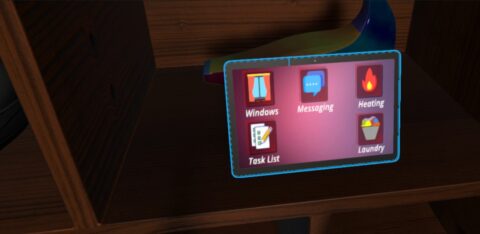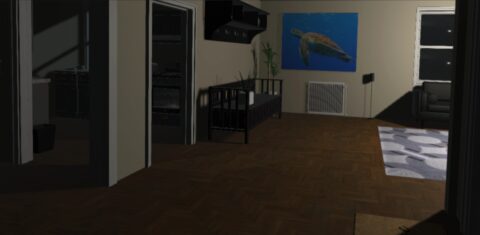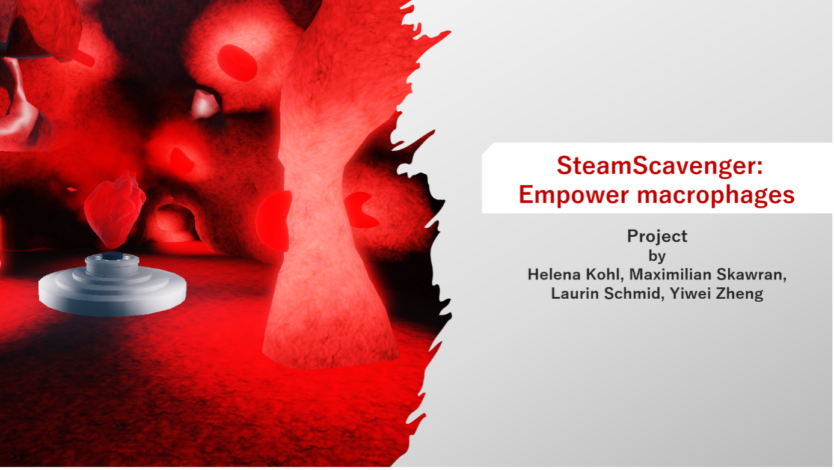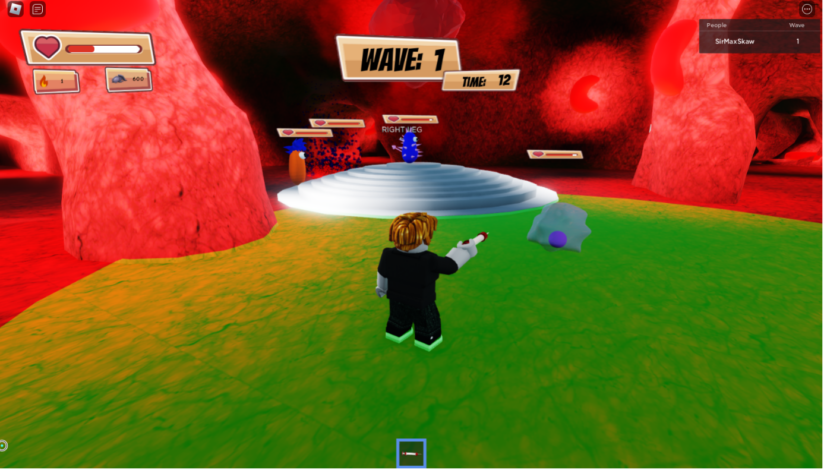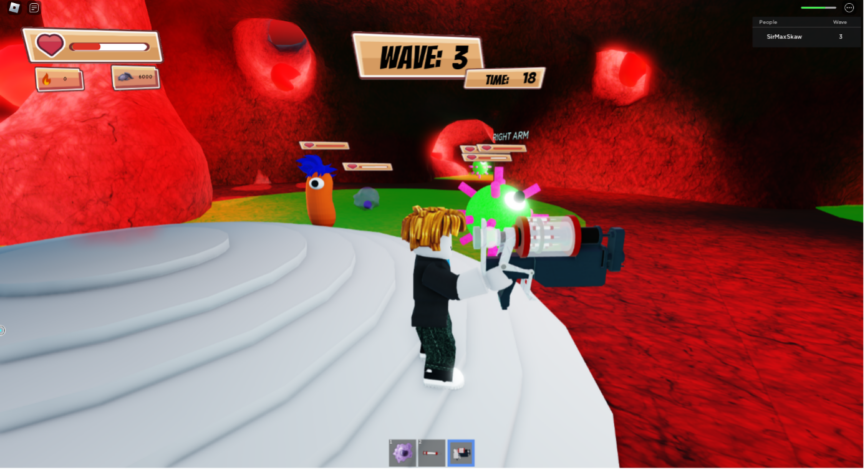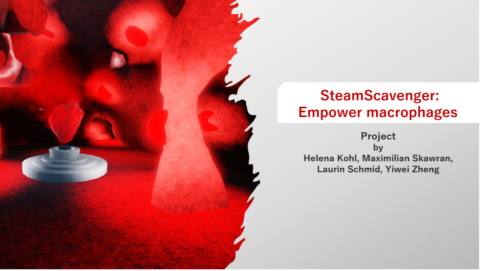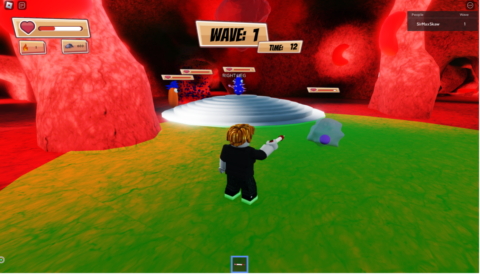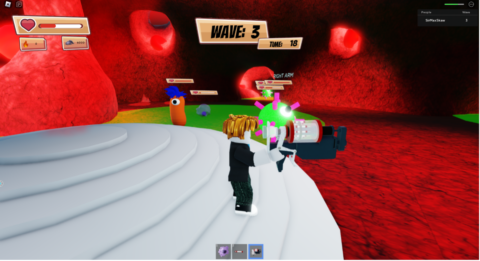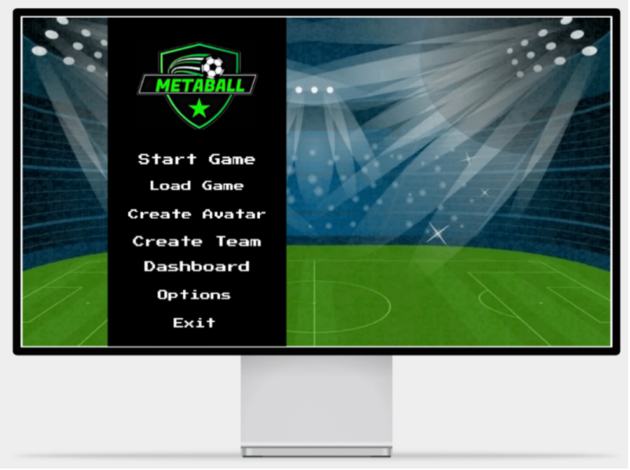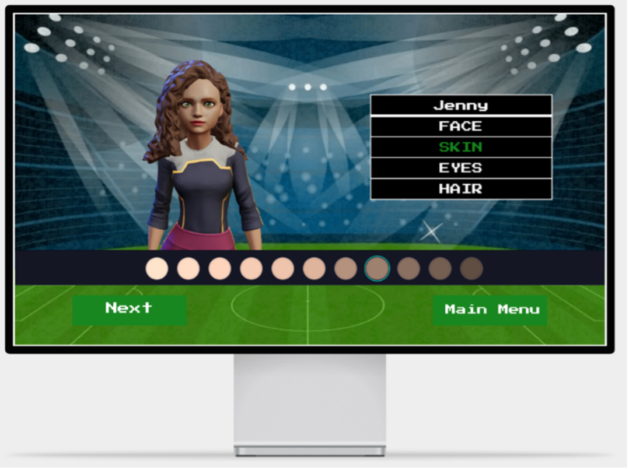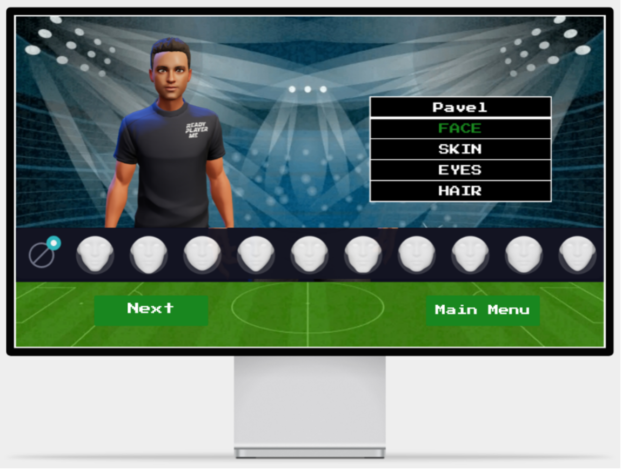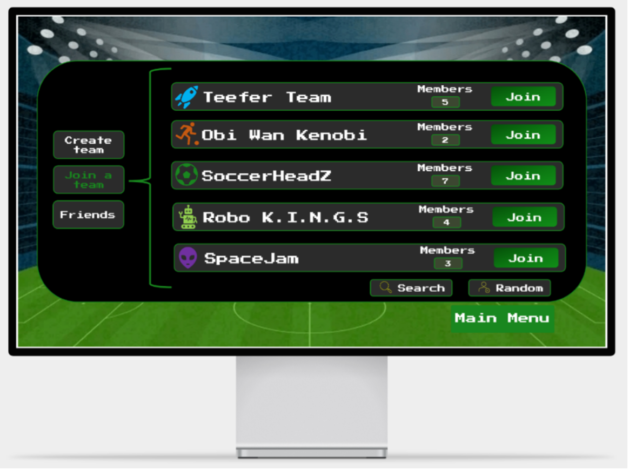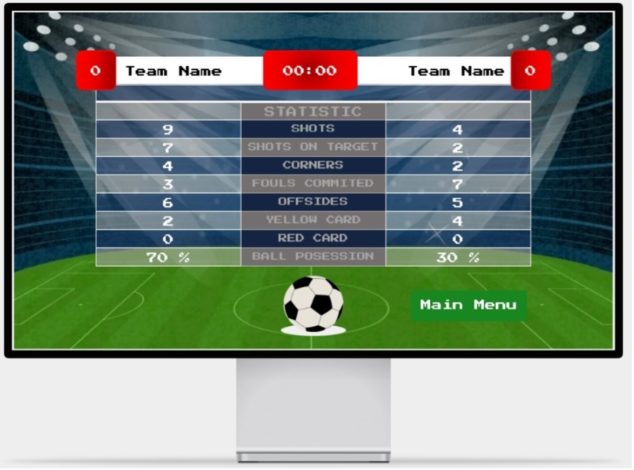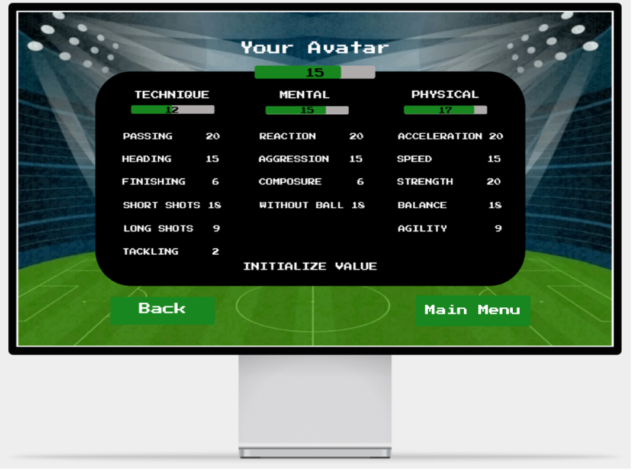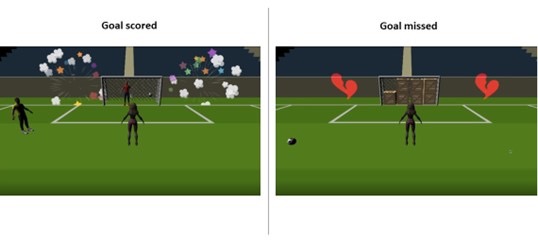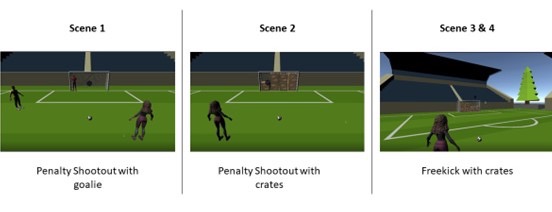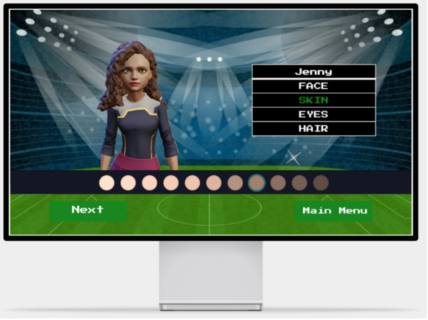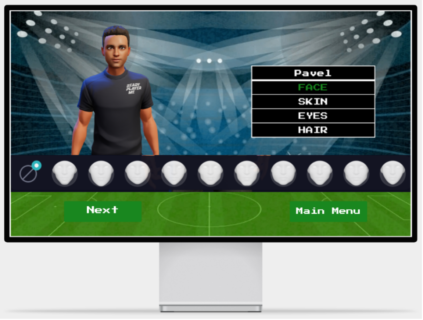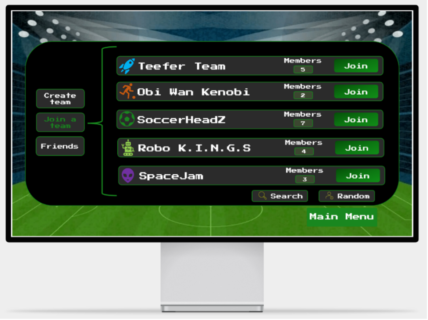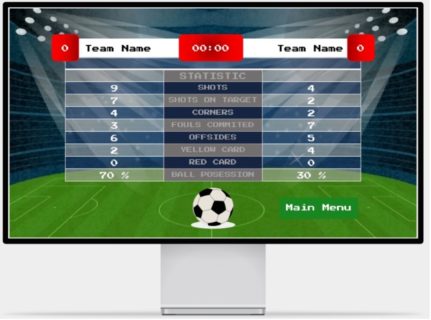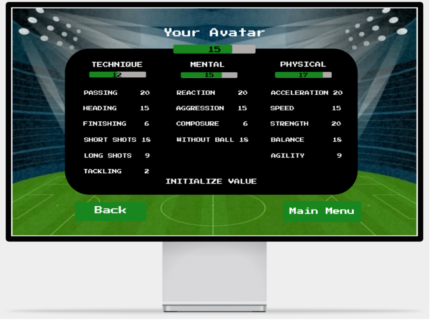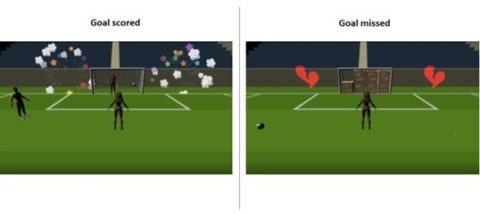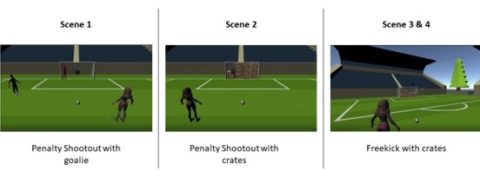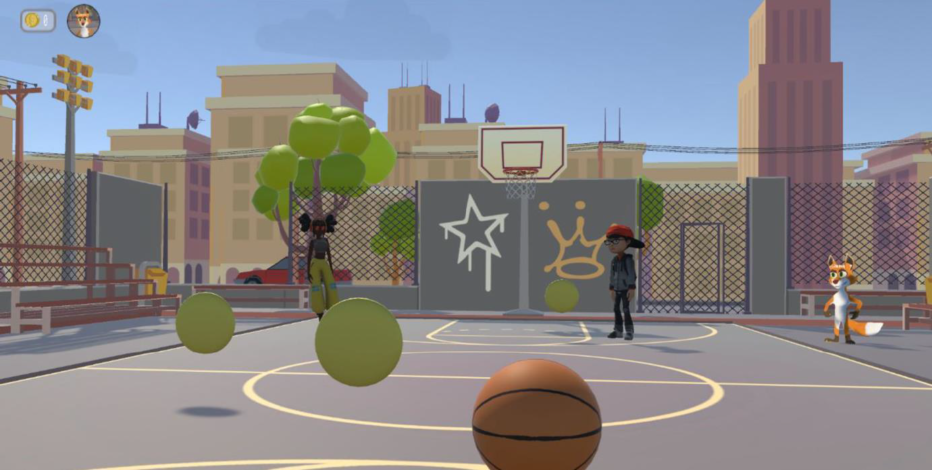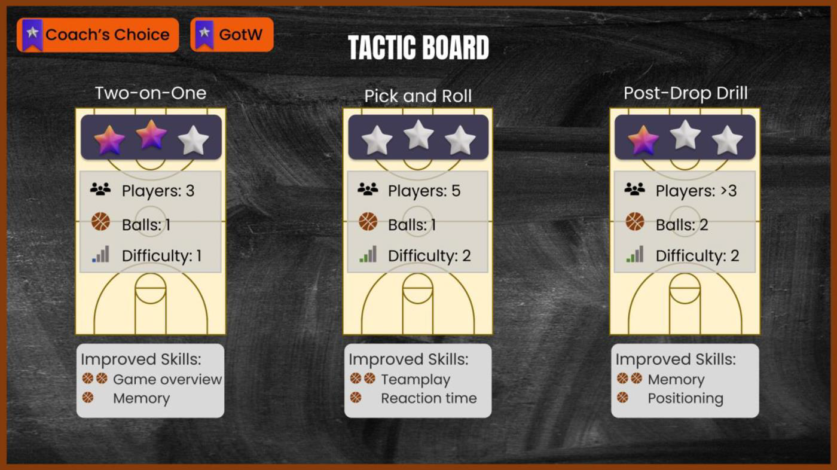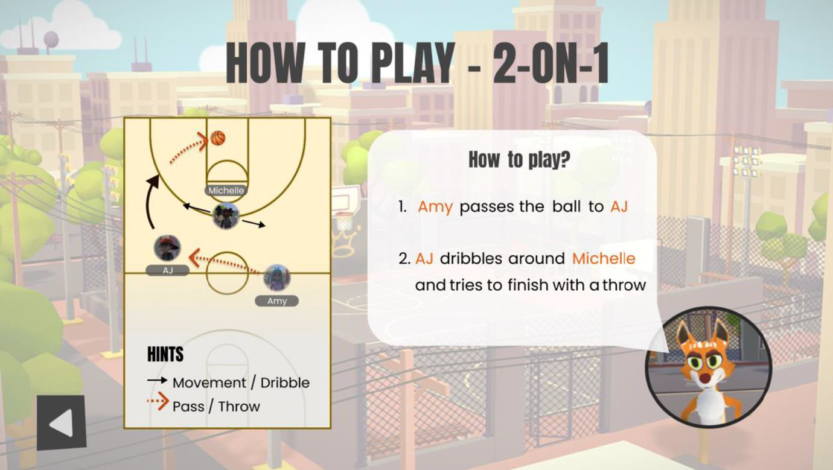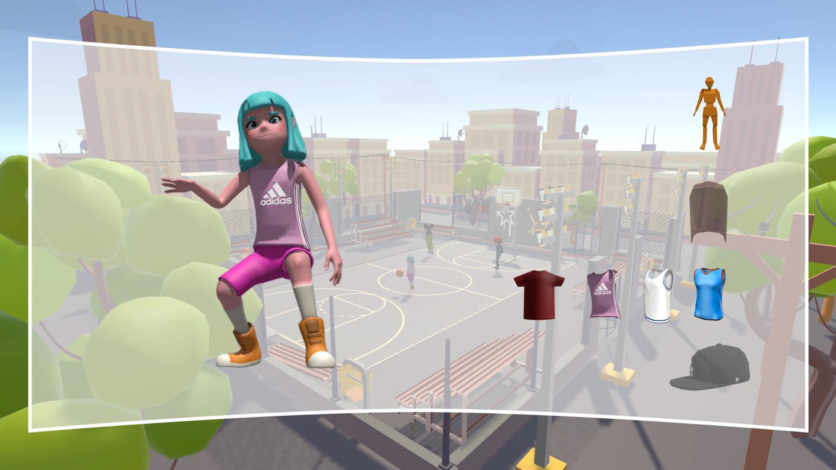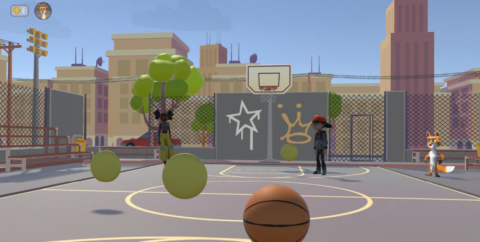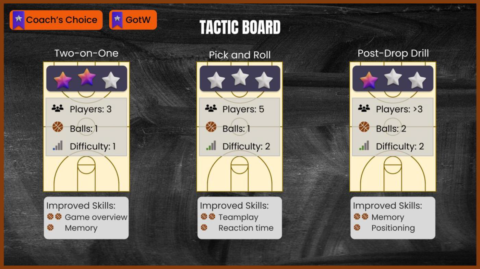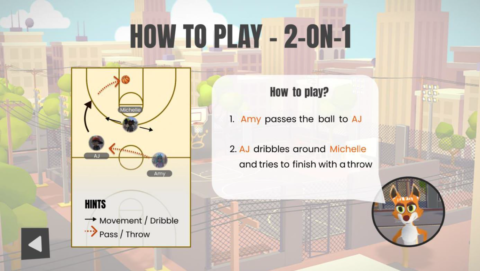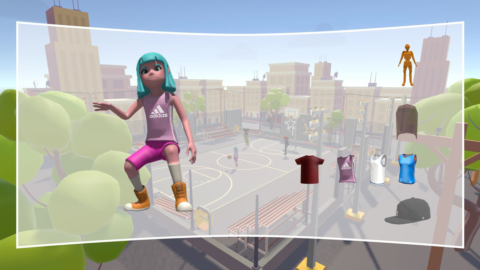Index
HeartWare
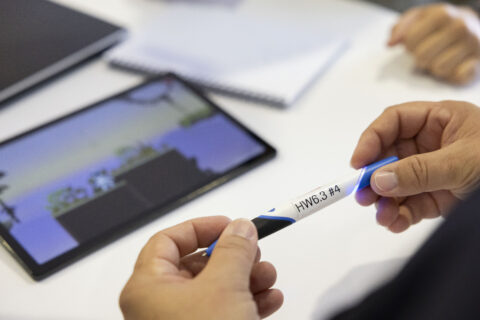
Herausforderung:
Mit dem Ziel, Schulkinder beim Schreibenlernen durch die Möglichkeiten moderner Sensorik und KI zu unterstützen, hat STABILO ein innovatives Produkt entwickelt: den Digipen. Inspiriert von diesem Produkt haben wir uns die Frage gestellt, ob ein digitaler Stift auch als innovatives Eingabegerät für digitale Spiele dienen kann. Ziel dieses Projekts war es zu erkunden, ob ein DigiPen im Vergleich zu klassischen Eingabegeräten wie z.B. Tastaturen, Mäuse, Gamecontroller neue, einzigartige Spielerlebnisse bieten kann. Im Sommersemester 2024 stellten wir Studierende der Vorlesung „Designing Gamified Systems“ daher vor die folgende Herausforderung:
Entwickeln Sie ein innovatives Spielkonzept (Einzelspieler oder Mehrspieler), bei dem ein DigiPen als Eingabegerät verwendet wird und die Spieler das Spielerlebnis positiver bewerten als mit der Verwendung herkömmlicher Eingabegeräte von Spielen.
Datum: Sommersemester 2024
Vorlesung: Designing Gamified Systems
Projektergebnisse:
HeartWare
Team:
Erika Sanchez Wong, Xhovana Prenga, Felix Schuhmann, Mahakdeep Kaur
Abstract:
HeartWare is a gamified learning system developed to enhance the educational experience of children by integrating the Stabilo EduPen into a 2D platformer game. The project aims to provide children with fun and interactive breaks during their learning sessions, thereby maintaining high levels of focus and cognitive performance. The game features a robot character, Michael Machini, on a quest to gain empathy by helping animals. Players navigate through levels, collecting gems and transformation triggers, and use the EduPen as the primary input device.
Gamification in educational tools has shown promise in mitigating boredom and lack of concentration in children. The Stabilo EduPen, with its integrated sensors, offers new opportunities for enhancing the learning process. HeartWare aims to leverage these technologies to create an engaging and educational experience that supports children’s learning and motor skill development.
We developed a 2D platformer game using Unity, integrating the Stabilo EduPen as the primary input device. The game comprises a tutorial level and two complete levels, each offering unique challenges and transformations for the player’s character. Our development process included iterative testing and adjustments to enhance gameplay and functionality. Following development, we conducted user testing with adults and children to assess the game’s usability and engagement. Feedback was gathered through guerrilla testing and contextual inquiry methods to understand user experiences thoroughly.
Users responded positively to the game, expressing enjoyment and engagement with the EduPen as an innovative input mechanism. Particularly, children appreciated the game’s challenges and character transformations, highlighting its appeal in educational gaming contexts. However, challenges surfaced during testing, especially among younger children who found controlling the character with the EduPen difficult due to occasional responsiveness issues. Technical feedback indicated instances of slow or unresponsive pen behavior, suggesting areas for improvement in user interface and input responsiveness. Moving forward, we aim to refine the game’s integration with the EduPen, expand the level design with additional challenges and transformations, and align the gameplay experience with Stabilo’s educational objectives.
Informationen zur Lizenzierung von in diesem Projekt verwendeten Adobe Stock-Medien.
Global Health – A VR approach for building climate change awareness
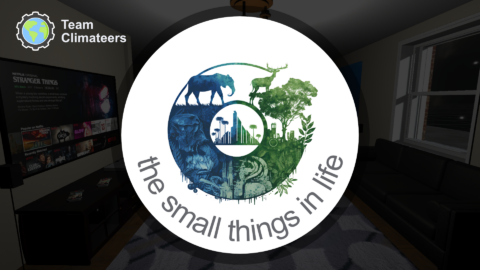
Herausforderung: Um ein besseres Verständnis für die Folgen des eigenen Handelns auf den Klimawandel zu fördern, bedarf es geeigneter Medien die einfach und verständlich sind. Virtual Reality (VR) hat sich zu einem wertvollen Instrument im Bereich der Bildung für nachhaltige Entwicklung entwickelt. Allerdings mangelt es nach wie vor an praktischen Ansätzen und empirischen Erkenntnissen zur Förderung des Bewusstseins für den Klimawandel. Deshalb haben wir, in Zusammenarbeit mit Prof. Dr. Daniel Roth, in unserer Vorlesung Exergames die Studierende vor die Herausforderung gestellt:
Develop a virtual reality solution that confronts users in an everyday life simulation with the consequences that may arise if the behavior shown in industrialised countries is calculated on the entire population of Earth.
Datum: Wintersemester 2021/2022
Vorlesung: Exergames
Projektergebnisse:
Global Health – a VR approach for building climate change awareness
Team:
Jonathan Denzler, Florian Enders
Abstract: “The small things in life” is about showing people the impact of their everyday actions on the climate and thus planet Earth. We created a VR prototype that is set in a virtual apartment where the player has to complete everyday tasks like deciding on which groceries to buy or how to heat their apartment. Emissions of their decisions are tracked in the background and extrapolated over 50 years assuming every person on the planet would live like the player. At the end of the game, the player can see the impact they had on the planet and hopefully gain a new perspective on how their actions influence our climate.
Inflammania 3D – SteamScavengers: Empower macrophages
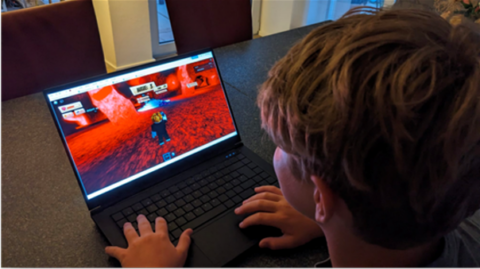
Herausforderung:
Digitale Game-Plattformen wie Roblox oder Minecraft erfreuen sich im Bildungswesen immer größerer Beliebtheit, da sie die Schaffung sozialer und immersiver Lernerfahrungen erleichtern. Allerdings wurde das Potenzial dieses aufkommenden Phänomens für die Wissenschaftskommunikation bisher kaum untersucht. In Kooperation mit dem Sonderforschungsbereichs 1181 (SFB 1181) der FAU entwickeln wir daher mehrere vernetzte 3D-Minispiele, die Spieler in die faszinierende Welt des Immunsystems eintauchen lassen, ihr Verständnis für Entzündungsmechanismen erweitern und Wissen über die neuesten Forschungsergebnisse des SFB 1181 vermitteln. Im Sommersemester 2023 stellten wir Studierende der Vorlesung „Designing Gamified Systems“ daher vor die folgende Herausforderung:
Entwerfen Sie ein Strategiespiel, in dem die Spieler:innen die Rolle des Immunsystems übernehmen, strategische Entscheidungen treffen um zu gewinnen und mehr darüber lernen, wie das Immunsystem Entzündungen nutzt, um Angreifer (z. B. Bakterien) zu eliminieren und Reparaturmechanismen in Gang zu setzen und welche Rolle hierbei das Protein IL-33 spielt.
Hierbei sollte Bezug zu aktueller Forschung des SFB hergestellt werden, insbesondere zu der Publikation „Faas et al., 2021, IL-33-induced metabolic reprogramming controls the differentiation of alternatively activated macrophages and the resolution of inflammation, Immunity 54, 2531–2546. DOI: https://doi.org/10.1016/j.immuni.2021.09.010„.
Datum: Sommersemester2023
Vorlesung: Designing Gamified Systems
Projektergebnisse:
Inflammania 3D – SteamScavengers: Empower macrophages
Team: Maximilian Skawran, Helena Kohl, Laurin Schmid, Yiwei Zheng
Abstract:
This project aims at the development of a video game that conveys biological knowledge in an entertaining and engaging way. It is based on research conducted at the University Clinic in Erlangen, which investigated how macrophages and IL-33 contribute to the resolution of inflammation. We wanted to make these complex biological processes understandable in a way that is accessible to children.
Since children typically do not have extensive knowledge of biology and have limited interest in conventional learning methods, we tackled this challenge with a gamification approach. The mission was to preserve the scientific accuracy of the biological information while creating an engaging game experience. For this reason, this project is based not only on biological research, but also on various gamification theories. In this way, we ensured that the focus is on the fun of the game, while at the same time providing continuous learning outcomes for the players.
As a result, we developed a game in which players navigate the human body as its immune system. They must protect the heart from various bacteria and viruses by strategically deploying macrophages and using the power of IL-33 to ensure their own survival. To implement this idea, we used Roblox, a popular online platform where users can create, share, and play games designed by others in a virtual environment.
Inflammania 3D – Catch me if you can: The CAR T Cell Solution
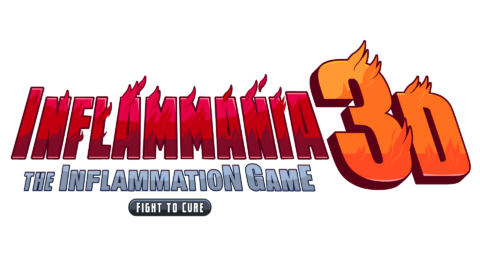
Herausforderung:
Das Metaverse gewinnt zunehmend an Bedeutung, da es das Potenzial hat verschiedene Branchen zu revolutionieren, darunter Spiele, Unterhaltung und
Handel, aber auch das Bildungswesen zu revolutionieren, indem es neue Wege für Zusammenarbeit, Kreativität und wirtschaftliches Wachstum. Dementsprechend bieten Metaverse-Plattformen wie Roblox ein noch unerforschtes Medium für die Wissenschaftskommunikation. Als Teil des Forschungsprojekts CRC1181 sollen mehrere miteinander verbundene 3D-Minispiele entwickelt werden, die die die Grundlage für eine virtuelle, lehrreiche Welt bilden, in der die Spieler in die faszinierende Welt des Immunsystems eintauchen, um Entzündungsmechanismen zu verstehen
und Wissen über den neuesten Stand der Forschung zu vermitteln. Hierfür wurde ein Proof of Concept benötigt, das im Rahmen des Seminars „Understanding and Designing the Metaverse“ auf Basis der folgenden Challenge erstellt werden sollte:
Design a cooperative gameful simulation in Roblox in which the players take over the role of the immune system of a patient with Systemic Lupus Erythematosus (SLE) in the novel and revolutionary CAR T-cell therapy developed as part of this FAU research project
Datum: Wintersemester 2022/2023
Vorlesung: Understanding and Designing the Metaverse
Projektergebnisse:
Inflammania 3D – Catch me if you can: The CAR T Cell Solution
Team: Rebecca Greiner, Simon Merk, Sylvie Reis, Jonathan Stief, Corinna Wüllner
Abstract:
3D metaverse platforms like Roblox have been popularized in various fields as they facilitate the creation of social and immersive experiences. Especially in the context of science communication, however, they still possess a wealth of untapped potential as they could make complex scientific topics more tangible and easier to grasp. Because this potential has so far hardly been explored, we developed a game that transfers knowledge about the autoimmune disease SLE and the newly developed “CAR T-Cell” treatment for it, to examine how it is perceived by users.
“What is SLE?”
It is a chronic autoimmune disease that can affect various organs and systems in the body. In systemic lupus erythematosus, the immune system mistakenly attacks healthy tissues, leading to inflammation and damage. Symptoms of SLE can vary widely from person to person but may include fatigue, joint pain, skin rashes (often in a butterfly pattern across the cheeks and nose), fever, chest pain, hair loss, mouth ulcers, and sensitivity to sunlight. SLE can also affect internal organs such as the kidneys, heart, lungs, and brain, leading to complications in some cases.The novel CAR T-Cell therapy however allows these patients to properly treated for the first time.
During the project a prototype was developed in ROBLOX, that immerses player into the body of a patient, to fight off corrupted B-Cells which reap havoc in the body, causing severe inflammations, that cause the severe impairments for the patients.
For a first evaluation, we conducted user testings in the form of think-aloud protocols and a survey to investigate whether first users enjoy and are immersed into the game and whether they feel they are learning through such an approach. Within the early stage of our research, it has become apparent that games for immersive metaverse platforms have the potential to convey complex scientific knowledge in a fun and understand-able wayand should be investigated further.


Rocket Team
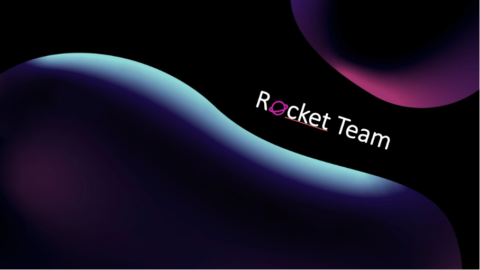
Herausforderung: In den letzten zehn Jahren sehen wir einen zunehmenden Einsatz von Gamification im Individualsport mit dem Ziel die Freude und Begeisterung von Athleten beim Training zu steigern. Gamifizierte Anwendungen wie Fitbit, adidas Running, Nike+, Fitocracy oder Strava, um nur einige zu nennen, inspirieren Massen von Sportlern regelmäßig aktiv zu werden. Allerdings fehlt es an Wissen und Konzepten, wie traditionelle Mannschaftssportarten, sei es Fußball, Basketball, Baseball oder Hockey, und deren Training gamifiziert werden können. Daher haben wir, in Kooperation mit der adidas AG, den Studierenden der Vorlesung „Designing Gamified Systems“ folgende Herausforderung gestellt:
Gestalten und untersuchen Sie eine neuartige digitale Gamification-Lösung für Ihre bevorzugte Mannschaftssportart, um das individuelle oder soziale Trainingserlebnis von Sportlerinnen und Sportlern, deren Trainingsleistung und die sozialen Dynamiken (z. B. Zusammenhalt und Teamidentität) innerhalb eines Sportteams zu steigern.
Fünf Projektteams arbeiteten an dieser Herausforderung und entwickelten innerhalb von zwei Monaten beeindruckende Konzepte und Prototypen, die dann den Führungskräften der adidas AG präsentiert wurden.
Datum: Sommersemester 2022
Projektergebnisse:
Rocket Team
Team: Dardan Berisha, Florian Enders, Rebecca Greiner, Anna Hollendonner
Abstract:
We are Rocket Team. Our vision is to motivate training partners to cooperate easily and thus help them improve upon their individual strengths as well as their team skills. For this purpose, we have developed a gamification approach that engages multiple Volleyball players to cooperatively train together. It is set into a new environment, a foreign planet on which the team must accomplish several challenges to build up a base and a rocket to escape the planet and move on with their mission. This concept is embedded in a mobile application that players can use as part of their training. Within the two-months-project we have developed a minimum viable product in Unity and Blender and investigated on user feedback. In the future, actual training data could be captured with the Adidas GMR tag to measure training success.
- YouTube Link: https://www.youtube.com/watch?v=JSnQXlq9wy8
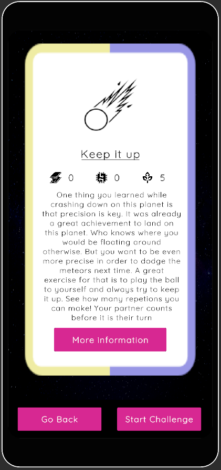
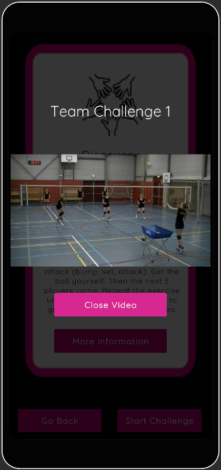
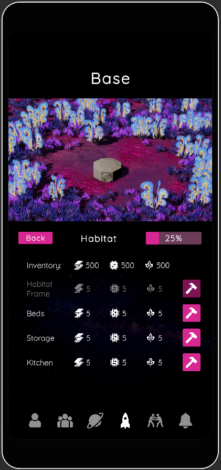
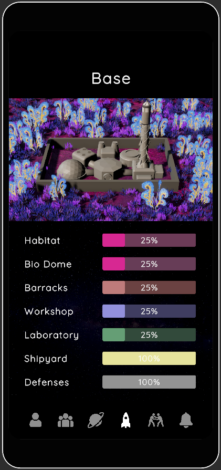
METABALL
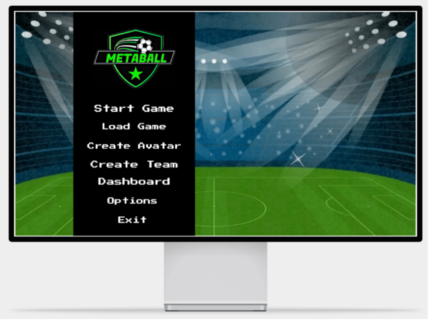
Herausforderung: In den letzten zehn Jahren sehen wir einen zunehmenden Einsatz von Gamification im Individualsport mit dem Ziel die Freude und Begeisterung von Athleten beim Training zu steigern. Gamifizierte Anwendungen wie Fitbit, adidas Running, Nike+, Fitocracy oder Strava, um nur einige zu nennen, inspirieren Massen von Sportlern regelmäßig aktiv zu werden. Allerdings fehlt es an Wissen und Konzepten, wie traditionelle Mannschaftssportarten, sei es Fußball, Basketball, Baseball oder Hockey, und deren Training gamifiziert werden können. Daher haben wir, in Kooperation mit der adidas AG, den Studierenden der Vorlesung „Designing Gamified Systems“ folgende Herausforderung gestellt:
Gestalten und untersuchen Sie eine neuartige digitale Gamification-Lösung für Ihre bevorzugte Mannschaftssportart, um das individuelle oder soziale Trainingserlebnis von Sportlerinnen und Sportlern, deren Trainingsleistung und die sozialen Dynamiken (z. B. Zusammenhalt und Teamidentität) innerhalb eines Sportteams zu steigern.
Fünf Projektteams arbeiteten an dieser Herausforderung und entwickelten innerhalb von zwei Monaten beeindruckende Konzepte und Prototypen, die dann den Führungskräften der adidas AG präsentiert wurden.
Datum: Sommersemester 2022
Projektergebnisse:
Metaball
Team: Jennifer Mitchell, Pavel Akram, Kartik Kanodia, B. S.
Abstract:
Welcome, we are METABALL!
Our team has developed a prototype soccer game in the Metaverse environment using the popular game development engine „Unity 3D“, along with a detailed game menu designed using the web-based design and prototyping tool „Framer“. Our game concept is still in its infancy and a playable one-person 3D game was developed. The overall project revolves around the theme „training meets metaverse“. The goal of our game is to create a gamified mixed reality training system for a team sport. This system should include various virtual components such as virtual goods, virtual worlds, or virtual avatars that ultimately help to strengthen the team identity and cohesion of the players. The game was designed so that players wear a sensor such as the „adidas GMR“ sensor on them during game training in the real world to collect and transfer this data to the virtual world, our game METABALL. This data is used to further develop the system. Our game is unique because the concept of „training meets metaverse“ does not yet exist. Our players train and improve their soccer skills individually or in a self-selected team in the real world. In the process, data such as distance, speed, ball hits scored, etc. are recorded and transferred to the virtual game. Depending on how well or badly the player performs in the real world, this also affects his avatar in the game. This is intended to encourage players to develop and improve their skills.
Metactics
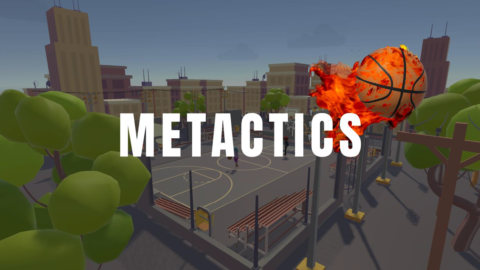
Herausforderung: In den letzten zehn Jahren sehen wir einen zunehmenden Einsatz von Gamification im Individualsport mit dem Ziel die Freude und Begeisterung von Athleten beim Training zu steigern. Gamifizierte Anwendungen wie Fitbit, adidas Running, Nike+, Fitocracy oder Strava, um nur einige zu nennen, inspirieren Massen von Sportlern regelmäßig aktiv zu werden. Allerdings fehlt es an Wissen und Konzepten, wie traditionelle Mannschaftssportarten, sei es Fußball, Basketball, Baseball oder Hockey, und deren Training gamifiziert werden können. Daher haben wir, in Kooperation mit der adidas AG, den Studierenden der Vorlesung „Designing Gamified Systems“ folgende Herausforderung gestellt:
Gestalten und untersuchen Sie eine neuartige digitale Gamification-Lösung für Ihre bevorzugte Mannschaftssportart, um das individuelle oder soziale Trainingserlebnis von Sportlerinnen und Sportlern, deren Trainingsleistung und die sozialen Dynamiken (z. B. Zusammenhalt und Teamidentität) innerhalb eines Sportteams zu steigern.
Fünf Projektteams arbeiteten an dieser Herausforderung und entwickelten innerhalb von zwei Monaten beeindruckende Konzepte und Prototypen, die dann den Führungskräften der adidas AG präsentiert wurden.
Datum: Sommersemester 2022
Projektergebnisse:
Metactics
Team: Sylvia Reiß, Anna Hirschbeck, Simon Merk, Nico Hambauer
Abstract:
Metactics is a Virtual Reality (VR) approach enabling teams to train their tactical basketball skills anytime from anywhere. Gamers can complete challenges with increasing strategic demands together and learn how to play smart. Thereby, they will be assisted by a virtual team mascot, named Foxy, who will guide them through the game and introduce them to various strategies. In essence, we employ gamification theory to make tactic training in basketball intrinsically more fun and effective. Teams can practice together in the Metaverse, learn new strategic moves and improve their cognitive skills and capability to “think ahead”. Besides the virtual training we provide a social environment in form of a virtual club house. Here teams can hang out enjoy time together and thereby strengthen team cohesion and identity. During the game, players can gain virtual coins, which can be used to acquire virtual goods for their personal avatar or the collective club house.
- YouTube Link: https://www.youtube.com/watch?v=Frs0tbX4SDE
- GitLab Repository: https://gitlab.cs.fau.de/ij58osol/gamis-2022
CUBEness
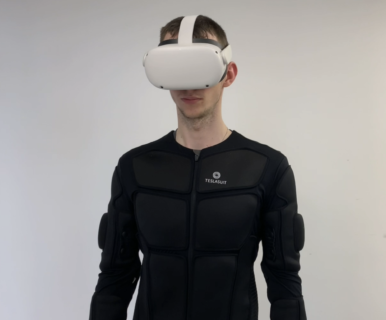
Herausforderung: In den letzten Jahren ist die Erkundung des Weltraums wieder zu einem Trendthema geworden. Verschiedene private Organisationen wie SpaceX, Blue Origin oder Virgin Galactic und Regierungsorganisationen aus den USA, China, Indien, Europa oder Russland konkurrieren um die Vorherrschaft im Weltraum. Neben der Erforschung neuer Welten ebnet dieser Trend den Weg für Innovationen, die auch unser Leben auf der Erde verändern werden. Zum Beispiel werden immer mehr Satelliten in den Orbit geschickt, die unsere Erde umkreisen und neue Möglichkeiten für die Erdbeobachtung oder flächendeckendes Highspeed-Internet ermöglichen. Dies bietet neue Herausforderungen und Möglichkeiten, welche mit Ansätzen aus dem Gaming und Gamification angegangen werden können. Daher lautete die Aufgabe des Kurses Designing Gamified Systems in diesem Semester:
Design an innovative game or gamification approach in which gaming, space technology and mobility meets in order to either A) improving life on earth or B) improving life in space.
Datum: Wintersemester 2021/2022
Vorlesung: Designing Gamified Systems
Projektergebnisse:
CUBEness
Team: Heschu Qarani, Jonathan Stief, Sherwet Galal, Cem Karatasan, Gerrit Sußner
Abstract:
The interest in space is constantly increasing: From space agencies planning longer projects, such as NASAs’ Artemis mission, to private companies such as SpaceX planning to put humans on Mars. Overall, the private sector of space tourism is projected to reach a total of US$1.7 Billion by 2027. The market will expand much further in the future, with long-term missions becoming increasingly frequent.
Yet these long-term missions pose significant strains on both the human body and the mind. First among them is the deterioration of muscles, muscle atrophy, and the cardiovascular system through microgravity. These effects are so severe that even short missions (< 30 days) can cause a muscle volume loss of 5.5 to 15.9 percent. In order to combat these effects, most space agencies employ in-flight exercises of about 2.5 hours six days a week. Secondly, space missions represent the “perfect boring situation” and can invoke mental health issues.
Our VR solution addresses both aspects equally, as it gamifies the required exercise to avoid physical consequences, as well as challenge the players mentally and provides opportunities for experiencing social relatedness. For this, it uses both state-of-the-art VR equipment, as well as a Teslasuit, to not only make the experience feel even more immersive through haptic feedback, as well as the possibility to enhance training effects. The main game consists of resource collection during the exercise and a base-building type game in the phases between workouts. Both take place in VR.
In order to overcome the dullness of the monotonous environment, the game features a story putting the players in a scenario in 2075, where Mars has been colonized, and it is now their shared mission to defend and extend the colony. However, players need to collect resources through exercise to repair and build further modules, which is conducted within the VR game.
In the story mode, they are guided through their exercise by story-related messages, collecting resources while traversing the base and the landscapes of Mars. As voluntariness represents an important point in the acceptance of gamified approaches, however, players also have the option to avoid the story. While exercising, they collect resources by swiping them to the side with their controller. From the collected resources they then have the possibility to build three different types of buildings: (1) shelter domes, which set the defense for the whole colony, (2) windmills, which produce electricity for the colony, (3) greenhouses, which produce oxygen. To increase complexity, create fun, and challenge players mentally, the electricity and oxygen stats must match the shelter, or the colony will be dysfunctional, and the defense will receive a debuff. Players will have to ready their bases for increasingly difficult challenges, such as further alien attacks, sand storms, and similar difficulties that life on Mars would bring. This aims to create a long-time engagement in the player, relying on the immersion and social interaction between the crewmates of the space mission to defend their shared colony.
We use a Teslasuit, a smart textile two-piece full bodysuit, to make the experience immersive and interactive. The suit provides haptic feedback, captures motion and biometric functions. Further, a full-body haptic feedback system is built into the suit with 80 electrostimulation channels, which could be used to provide instant feedback on the players‘ performance within the game. It can be functionalized in response to motion capture comparison at any time. No additional equipment will be need. The approach may be used with existing training equipment in space stations such as the ISS.
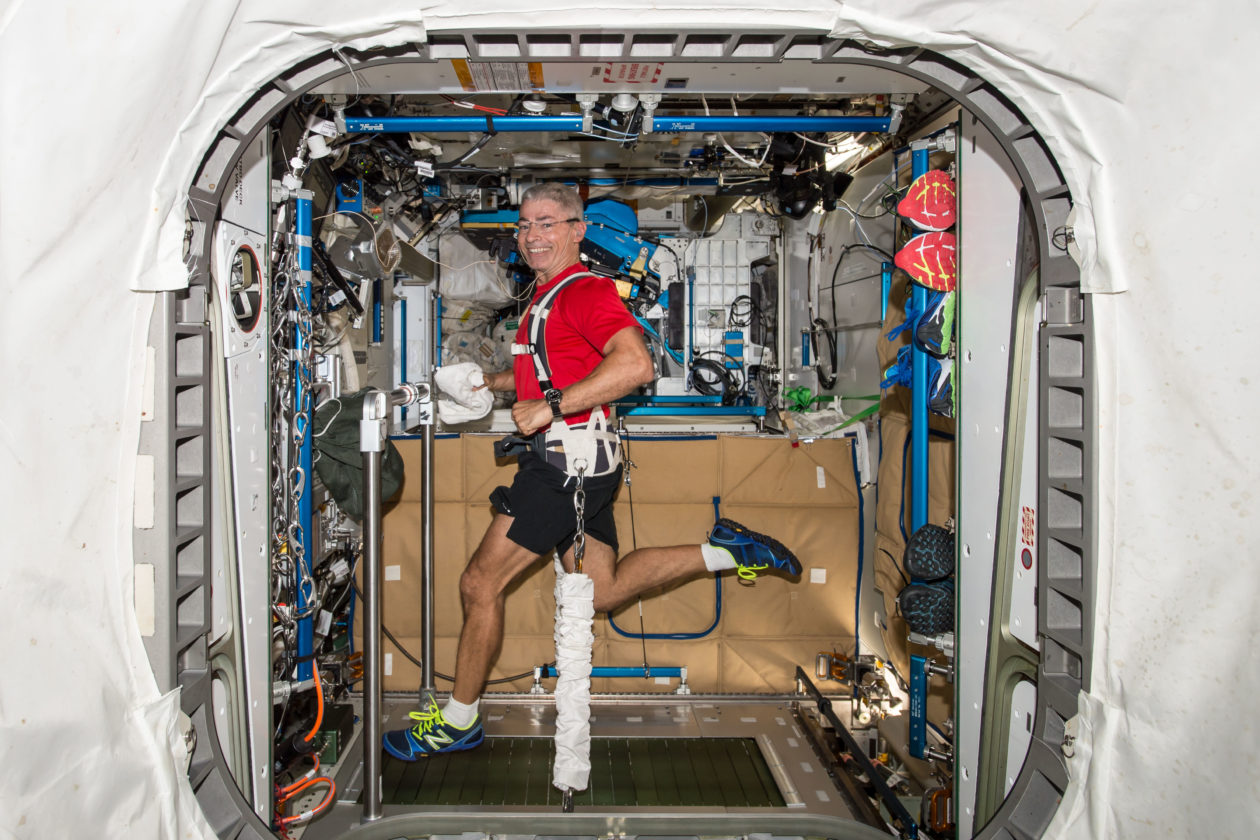
reHAND
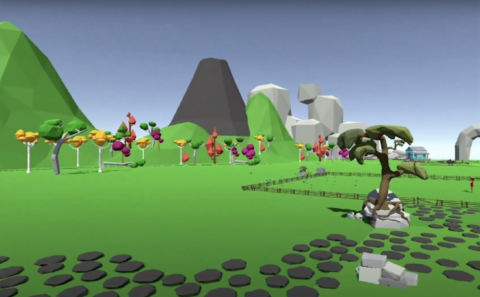
Herausforderung: Der Einsatz digitaler Technologien in Rehabilitationsprozessen nimmt stetig zu. Studien belegen insbesondere Vorteile telemedizinischer Assistenzsysteme in der Rehabilitation und Nachsorge, da Sie Patienten individuell und zu Hause unterstützen können. Ziel des Projekts ist die Entwicklung einer gamifizierten Anwendung zur Unterstützung und Motivation von Patienten in der Handrehabilitation.
Automate rehabilitation procedures with gameful simulations and make it accessible (at home)
Datum: Wintersemester 2021/2022
Vorlesung: Exergames
Projektergebnisse:
reHAND − Cyber Rehabilitation for hand injuries
Team: D. Braun, E. Alekseenko, V. Rincon, A. Patoary
Abstract: The human hands have a complex structure. Hand injuries, therefore, have a significant negative impact on multiple life aspects. This project presents a Virtual Reality (VR) Exergame to help medical practitioners receive information on improvement rates and make exercising more attractive to patients. The game has been developed in Unity 3D game engine for the HTC VIVE Focus 3. The reHAND system performs an error calculation of the user’s hand movements and then provides feedback on the accuracy with which a user can perform an exercise. While playing, a user should protect their garden from the angry jealous neighbor, who throws trash in it. Accordingly, the patient performs certain hand movements to break thrown objects. Further, reHAND covers such motivational affordances as points (intrinsic game score), levels, and storytelling.
GitLab Repository: https://gitos.rrze.fau.de/hex-teaching-2021/exergames/exergames-group-3
CANYoU
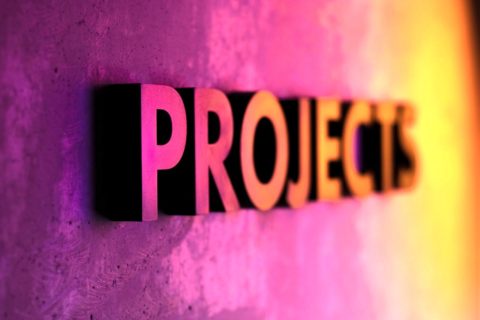
Herausforderung: Videospiele könnten schon bald olympisch werden! Als Vorveranstaltung der Olympischen Spielen in Japan veranstaltete das IOC veranstaltet dieses Jahr überraschend ein eSports-Wettkampf und die 19th Asian Games 2022 in Hangzhou werden die erste olympische Veranstaltung sein, bei der sowohl eSports als auch Sportathleten in ihren Disziplinen Goldmedaillen gewinnen können. Das hat uns inspiriert. In Kooperation mit Mercedes-Benz haben wir Studierende der Vorlesung Designing Gamified Systems vor die Herausforderung gestellt, ein innovatives Spiel bzw. einen Gamification-Ansatz für potenzielle Besucher der Asian Games 2022 zu entwerfen, in denen Sport, Gaming und Mobilität als Teil einer unvergesslichen Mixed-Reality-Erfahrung aufeinandertreffen:
Design an innovative game or gamification approach in which sports, gaming, and mobility meet as part of an unforgettable mixed-reality experience for potential visitors of the 2022 Olympic Asian Games in China, Hangzhou.
Drei Projektteams arbeiteten an dieser Herausforderung und entwickelten innerhalb von 2 Monaten beeindruckende Konzepte und Prototypen, die anschließend den Führungskräften der Mercedes-Benz AG, Daimler AG und MBition GmbH präsentiert wurden.
Datum: Sommersemester 2021
Projektergebnisse:
CANYoU − Spreading the Spirit of the Asian Games 2022 Through AR-Based Minigames Together With Mercedes-Benz
Team: Team UNICORNS: J. van de Logt, Y. Zuber, S. Berzins, J. Rosenberger
Abstract: Designing a gamified experience for the Asian Games 2022 – what could be more innovative to spark interaction and connect people from different backgrounds? Challenged by the project client Mercedes-Benz, a concept for the gamified system CANYoU was designed and brought to life by applying prototyping techniques. Key milestones represented the conceptual game design, the technical development of a mini game and the creation of wireframes for mobile and in-car application. Testing activities conducted at the last stage showed that the group of testers wished for the extension of games beyond the screen of mobile devices. Correspondingly, CANYoU was experienced as a fun game to involve people in sports and connect with each other in real life. Nevertheless, there is still room for improvement regarding the AR approach of the game. The UI/UX design of the game is overall perceived as intuitive, however, additional design iterations are required to optimize users’ clicking behavior. In addition, further testing is inevitable as the testing set-up was not always self-explanatory for the users and a stronger emphasis must be put on Asian users to ensure a tailoring to culture-specific needs. Regarding the future of the project, the prototyping may be taken one step further in the form of a downloadable, working application. This would again involve extensive user testing prior to a launch of the app onto the Asian market. To increase the operational efficiency in implementing these steps, the focus should lie on the enhancement of the technical infrastructure for the app development. In the end, a closer collaboration with Mercedes-Benz would as well be favorable to enable a close alignment of the design, scope, and functionality of CANYoU with the expectations of the stakeholder.
